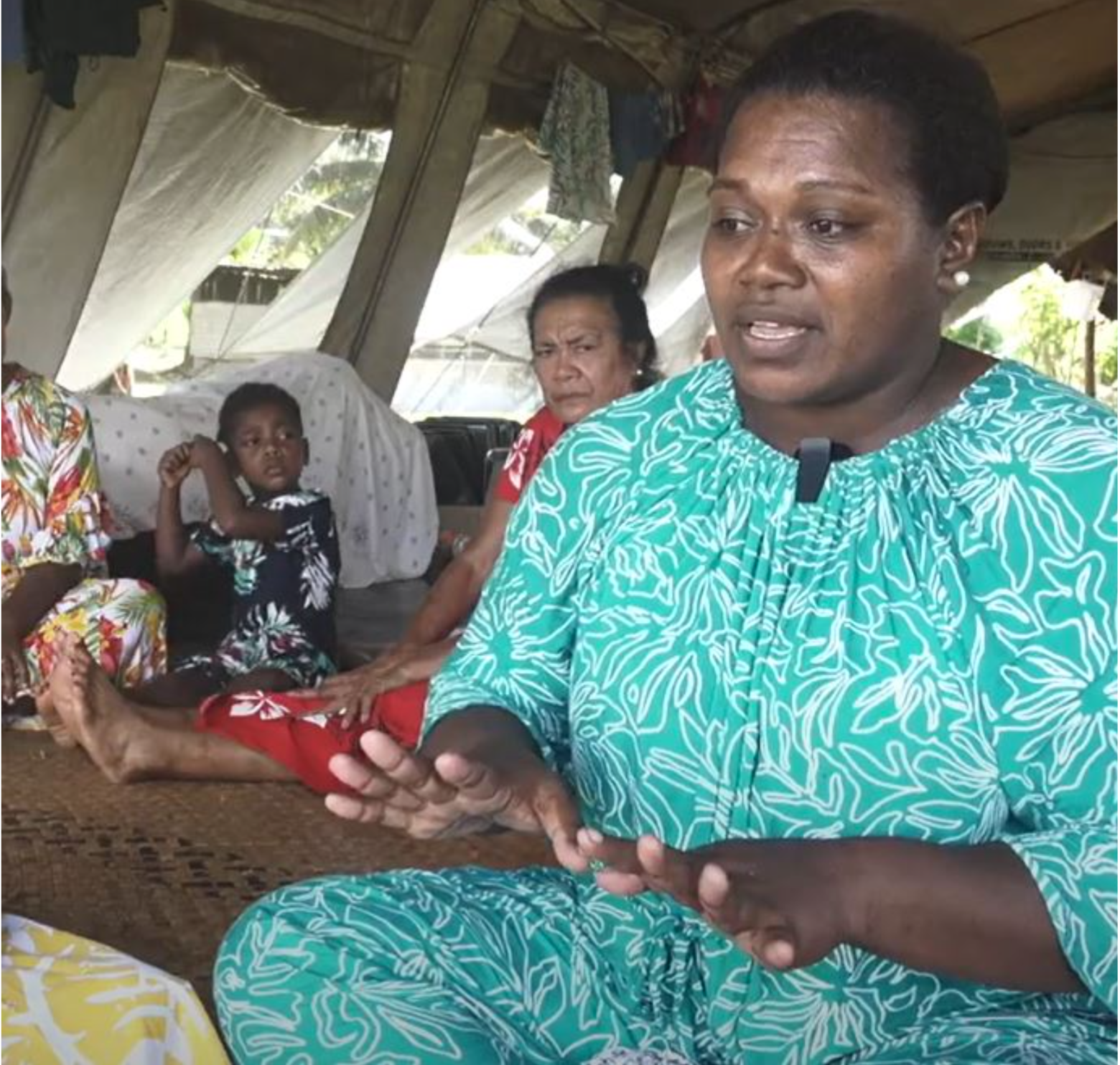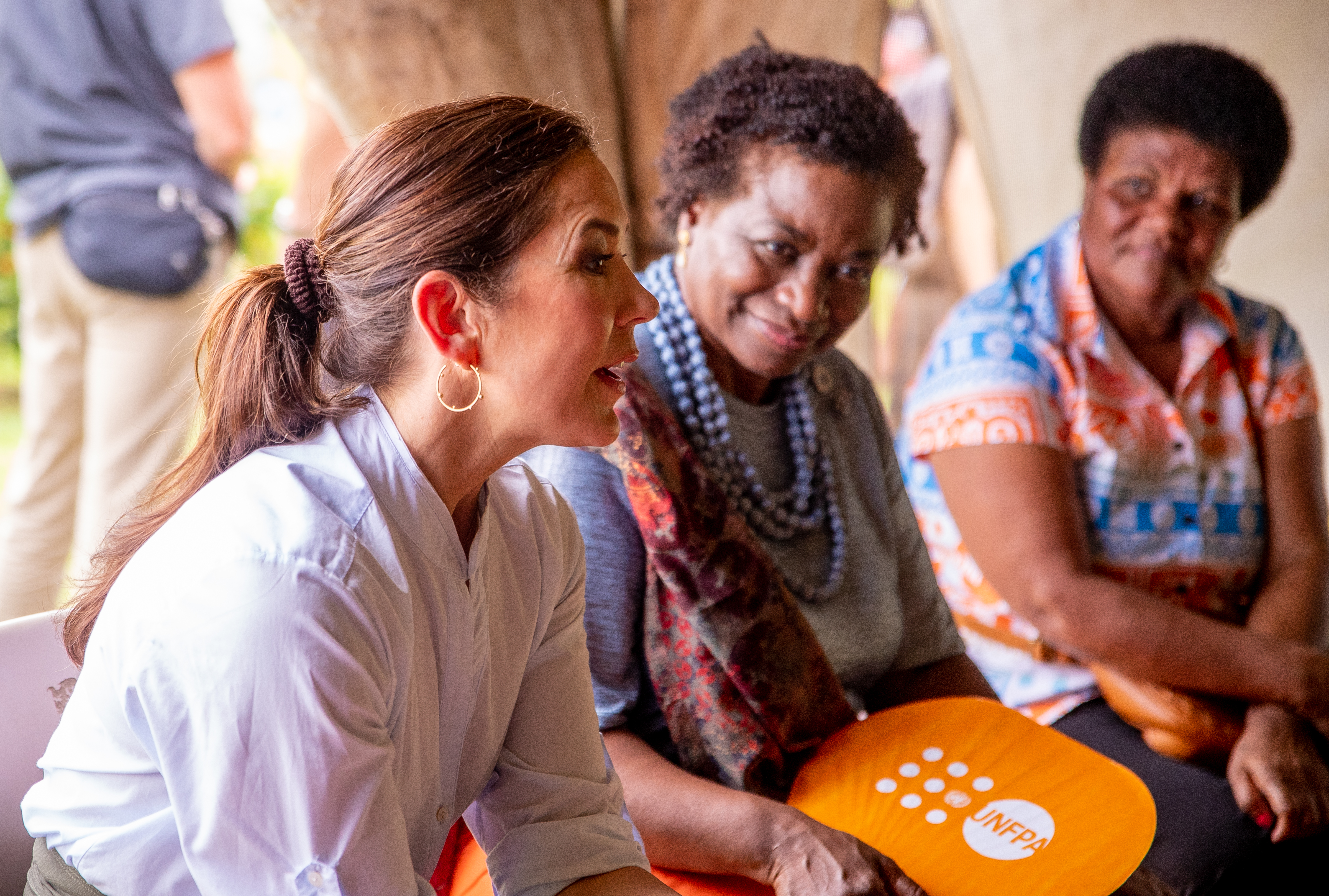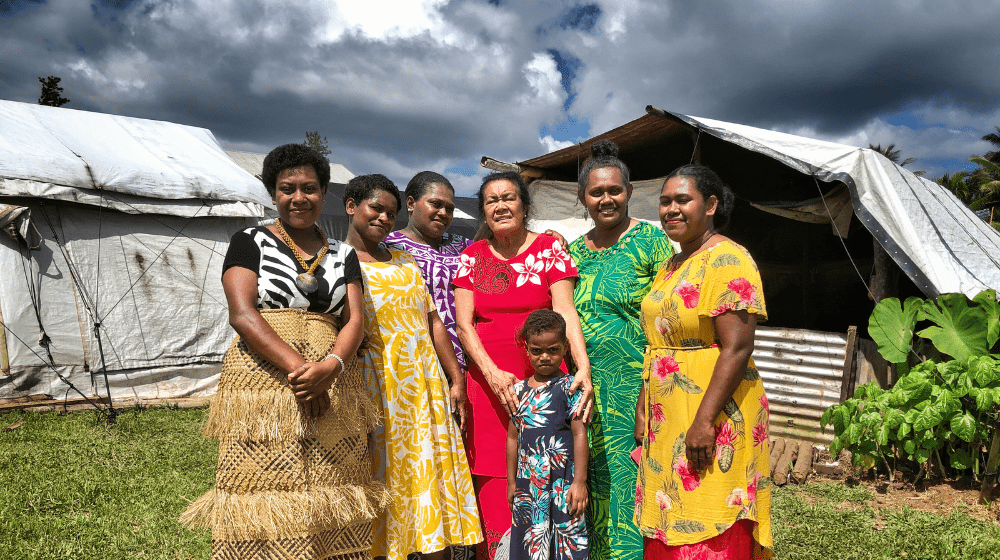VANUA LEVU, FIJI: ‘Mom, when are we going back to our house?’ Lusiana Radua, mother of four, is often asked by her children since the entire family became displaced by the ravaging Tropical Cyclones Yasa and Ana, which hit the island of Vanua Levu, northern Fiji, destroying homes and livelihoods at a large scale.
Almost 2.5 years later since Cyclones Yasa and Ana, Lusiana’s family - along with over 55 other families from Nabavatu Village in Vanua Levu - still lives in the tented temporary housing site, not too far from their original village. While the tents provide a roof over the families heads, the wooden floors often get flooded when the rains pour, and during the day, the heat inside the tent becomes unbearable.
UNFPA responded to the humanitarian crisis caused by the two consecutive cyclones by distributing ‘Dignity Kits’ to women and girls, and setting up a total of 12 Women Friendly Spaces (WFS) in the affected areas, managed by 23 retired midwives, in collaboration with the Northern Division health teams, Community Health Workers, local communities and civil society organizations, and with the generous support of Australia’s Department of Foreign Affairs and Trade (DFAT).
‘During the Cyclone, the top of our house got ripped off, so we moved to the temporary housing site. We had absolutely nothing. When they [WFS staff] came, we learned what to do concerning our reproductive health, and keeping our children safe. They taught us about equality. They also gave us Dignity Kits. They explained to my eldest daughter about menstruation, and what to do about it. They explained how to use the pads, and how to dispose of them. Something I didn’t have the courage to explain to her.”

On 25 April 2023, UNFPA Executive Director, Dr. Natalia Kanem, along with Patron of UNFPA, H.R.H. Crown Princess Mary of Denmark, and the Danish Minister for Development Cooperation and Global Climate Policy, H.E. Dan Jørgensen, visited Nabavatu Village to see firsthand the devastating impact of climate-related disasters on communities in the Pacific, especially on women and girls.
Recalling her heartfelt interactions with the Nabavatu villagers, Dr. Kanem said: “The women and girls I met described in vivid detail the devastating impacts of the disaster on their health and dignity, and just how essential the sexual and reproductive health and psychosocial support they received was for their recovery.”
Women Friendly Spaces are a form of humanitarian action provided by UNFPA globally when an emergency strikes, offering safe spaces where women and girls can access a range of sexual and reproductive health information, services, and commodities to maintain and improve their dignity and well-being. Disaster-affected women and girls can find shelter in WFS to protect themselves from risks of Gender-Based Violence, where GBV survivors can also access psychosocial support and referrals to relevant service providers.

Retired midwife, Suliana Batikawai, one of the midwives who managed the Women Friendly Space in the temporary Nabavatu Tent Village back in 2021, recounted the support she and her team provided to the community: “We supplied Dignity Kits to adolescent girls and adult women, containing pads, sulu (traditional wrap around garment), soap, torch, towels and other necessary items for them. They liked these contents very much. It was an inspiration to them to receive something which they could not afford at such a challenging time.”
Midwife Suliana and her team also provided educational awareness sessions on pregnancy, antenatal and postnatal care, family planning, menstrual health management, overall health and nutrition, among others. She said that the WFS gave women and girls a safe space and privacy, to voice their challenges through the session gatherings. “The Women Friendly Space allowed us to build trust and connect with the community and help them in the immediate aftermath of such a disaster with the essential items when they need them the most,” she added.
Around the world, climate-related disasters are increasing in scale, frequency, and intensity, eroding the progress made in health, gender equality and overall socio-economic development. Despite contributing to less than one per cent of the world’s total greenhouse gases, the Pacific island countries and territories are among the most vulnerable to its impact. The Nabavatu situation is a glaring example of how gains made in isolated rural communities can be reversed in a matter of hours.
Lusiana and her family at the Nabavatu tent village are now seeing a light of hope for the future, as the Fiji Government’s efforts are intensified, having identified and surveyed a new, more permanent relocation site for the displaced villagers.
Dr. Kanem handed over relief items to them when visiting the site. “Fiji and its neighbours in the Pacific know all too well the impacts of climate-related crises. When I was in the tents, I was moved by how the community is determined to recover and get their lives back on track.”
“What UNFPA does, here in Fiji and elsewhere, is to ensure the continuity of the cycle of life. As we work with communities to build resilience to the effects of climate change, it is crucial that we listen to women and young people, recognize and prioritize their needs, and include them in policy making and humanitarian action.”


